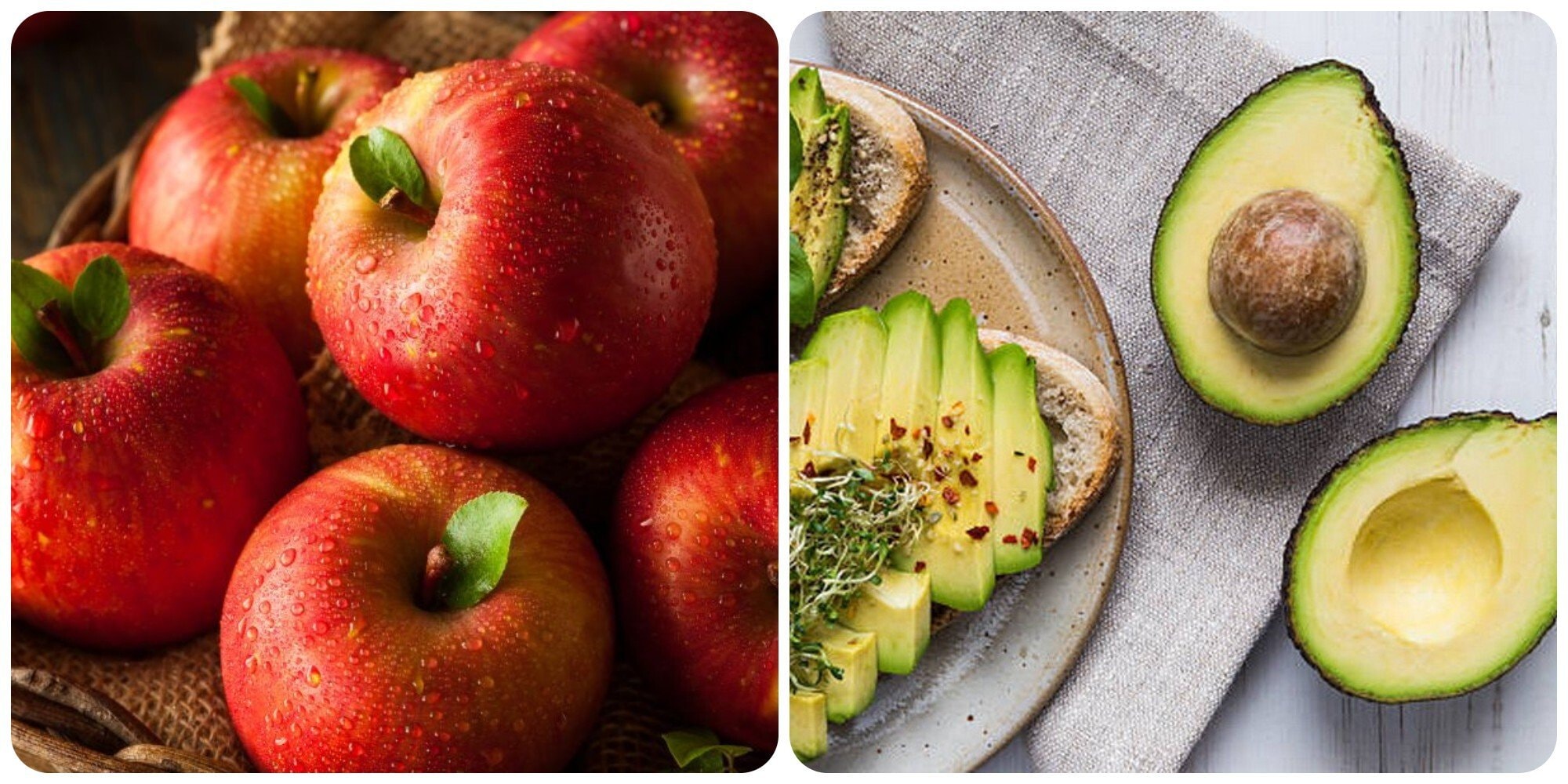5 types of fiber-rich fruits that help relieve constipation.
The following fruits are rich in fiber, which helps to effectively relieve constipation.
What foods contain natural dietary fiber?
The article on the Medlatec General Hospital website, with medical consultation from Dr. Duong Ngoc Van, states that natural fiber is present in many types of food, especially plant-based foods.
Here are some rich natural sources of fiber, helping you maintain a healthy and nutritious diet:
green vegetables
Green vegetables are an excellent source of fiber. Leafy greens like spinach, kale, collard greens, and broccoli are rich in fiber, which helps improve digestion and reduce the risk of cardiovascular disease.
Fruit
Fruits are a rich natural source of fiber, especially those with edible peels. Besides fiber, fruits are also rich in vitamin C, potassium, and antioxidants that are beneficial to health.
Whole grains
Whole grains such as oats, barley, brown rice, buckwheat, and whole wheat are excellent sources of fiber. These grains provide both soluble and insoluble fiber, which helps maintain healthy digestive function and stabilize blood sugar levels.
Seeds and beans
Seeds and legumes are excellent sources of fiber, which helps support digestion and provides other nutrients such as protein and healthy fats. Some fiber-rich seeds and legumes include chia seeds, flax seeds, sunflower seeds, black beans, lentils, peas, chickpeas, etc.
Vegetables and fruits
Some root vegetables are high in fiber, especially those with edible skins. Examples include sweet potatoes, carrots, and beets.
Yogurt and dairy products
Although not a primary source of fiber, some yogurt products are fortified with fiber and probiotics that can support digestion and boost the gut microbiome.

Mushroom
Some types of mushrooms, especially shiitake mushrooms, also contain natural fiber and are rich in nutrients and beneficial to health.
5 types of fiber-rich fruits that help relieve constipation.
Here are some common, fiber-rich fruits you can buy at any market:
Raspberry
With approximately 8g of fiber per cup of raspberries, they are an excellent source of soluble fiber, which helps improve digestive function and support the gut microbiome.
Banana
Bananas are a familiar tropical fruit that is not only delicious but also offers many great health benefits. On average, 100 grams of fresh bananas provide about 2.6 grams of fiber, which helps the digestive system function smoothly and prevents constipation.
In particular, green bananas are rich in resistant starch fiber, a type of insoluble fiber that nourishes beneficial bacteria in the gut, helping to improve digestive health and enhance nutrient absorption.
When ripe, bananas turn yellow, have a naturally sweet taste, and can be eaten directly or processed into many delicious dishes such as banana smoothies, banana cake, banana ice cream, etc. Bananas are not only a delicious food but also a healthy choice for all ages.
Pear
Pears are a highly nutritious fruit, especially rich in fiber. On average, 100 grams of pears contain about 3.1 grams of fiber, a significant amount that helps support a healthy digestive system. Fiber is most abundant in the pear peel, so to maximize this benefit, you should eat the peel as well.
In addition to fiber, pears are also a rich source of other essential vitamins and minerals. For example, pears are high in vitamin C, a powerful antioxidant that helps boost the immune system and protect the body from harmful free radicals.
The vitamin K in pears plays an important role in blood clotting and maintaining bone health. In addition, pears are also a source of potassium, a mineral essential for cardiovascular function and stable blood pressure.
Apple
Apples contain both soluble fiber (pectin) and insoluble fiber (cellulose), which help improve overall digestive health. Pectin helps lower bad cholesterol levels, while cellulose helps improve bowel motility.
Additionally, apples are low in sugar and rich in antioxidants such as quercetin, catechin, and chlorogenic acid, which help protect cells from damage and reduce the risk of chronic diseases. Apples can be eaten raw, in salads, juiced, or used in cooking, but for the best benefits, they should be eaten with the peel.
Butter
Avocados are notable for their high fiber content, with approximately 6.7 grams of fiber per 100 grams. This means that an average avocado can provide nearly half of the recommended daily fiber intake for adults. The fiber in avocados is largely soluble fiber, which forms a gel in the intestines, helping to slow the absorption of sugar and cholesterol, thereby stabilizing blood sugar and reducing bad cholesterol (LDL).
With only about 0.7 grams of sugar per 100 grams, avocado is a great choice for those monitoring their blood sugar levels. The fat in avocados is mostly monounsaturated fat, especially oleic acid, which is beneficial for cardiovascular and brain health. This fat also helps enhance the absorption of fat-soluble vitamins such as vitamins A, D, E, and K.



